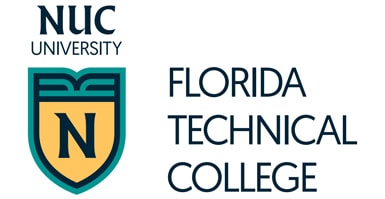Computer Technician Training Schools
Computer technician training schools focus on helping students develop essential skills related to maintaining and repairing the devices and systems that individuals and organizations depend on. By learning how to solve a wide range of computer problems, you can become part of a field that offers abundant career opportunities and good advancement potential. Some programs take less than a year to complete and help students prepare for popular information technology (IT) certifications.
Education & Training
Computer repair schools offer a variety of program types, some of which require only a few months to complete.
Length of Training
Programs can take anywhere from four to 48 months, depending on the type of credential you pursue.* The OOH notes that technicians who focus on network support typically need more advanced credentials than those who concentrate on user support.
Most Common Length of School*
(range in months)
-
Computer technician
-
Information technology
-
Computer programming
-
Computer science

Program Options
Certificate and diploma programs are the shortest options, generally taking no more than a year to complete.* They offer foundational training in areas like installation, configuration, troubleshooting, and repair. Some are focused exclusively on preparing students for specific industry certifications.
Associate degree programs take up to two years.* They typically cover the fundamentals of computer systems and include general education courses like math and communications.
Bachelor's degree programs usually take about four years, though some can be completed in as little as three.* They tend to offer more advanced coursework in areas like database programming, network security administration, and business management.
Typical Courses
Programs often cover topics like:
- The fundamentals of different operating systems
- Computer maintenance and repair
- Network security
- Routers and firewalls
- Systems management
- Basic programming
Skills You Can Learn
You could begin learning how to:
- Conduct diagnostic tests
- Perform preventive maintenance
- Install, configure, administer, and repair computer hardware and software
-
Support and upgrade computer systems and devices, such as those running on:
- Windows
- Linux
- Chrome OS
- macOS
- iOS
- Android
- Document repair and maintenance activities
- Communicate with users
Licensing & Certification
You do not need to be licensed or certified to work as a computer technician. However, many employers look for voluntary certifications that indicate you have a certain level of expertise in a specific technology.
For example, by earning the CompTIA A+ certification, you are demonstrating your ability to troubleshoot several different operating systems and devices. Many computer technician programs prepare their students to take the A+ exams.
CompTIA offers additional certifications in areas such as networking and security. Relevant certifications are also available from technology companies like Cisco and Microsoft.
Education & Training FAQs
Will my certifications expire?
 Because technology changes so quickly, many IT certifications must be renewed periodically.
Because technology changes so quickly, many IT certifications must be renewed periodically.
For instance, role-based Microsoft certifications are valid for two years. The company is in the process of developing its renewal procedures.
CompTIA and Cisco certifications are generally good for three years. If you wish to renew, you must complete a certain number of continuing education credits and/or pass an exam.
What should I look for in a computer technician program?
Ensure that the program you pick provides you with training in repairing hardware, troubleshooting software problems, and running automatic diagnostic programs. The more familiar you are with installing, modifying, and repairing different types of computer software and hardware, the better prepared you will be to solve a wide variety of technical issues.
It is also important that your program provides plenty of time to practice your skills. After all, most people learn best by doing. Look for a program that develops your ability to solve complex technical problems through repeated trial-and-error practice with industry-standard equipment.
One of the best ways to get experience beyond your classroom training is through an internship in the field. Some computer repair training programs offer this option to students because it's a great way to get on-the-job instruction and make valuable industry connections.
Computer Technician Schools
Sponsored Listings
Lincoln Tech
- Iselin (Edison), New Jersey
- Moorestown, New Jersey
- Paramus, New Jersey
- Computer and Network Support Technician
Laurus College
- Atascadero, California
- Chula Vista, California
- Oxnard, California
- San Luis Obispo, California
- Santa Maria, California
- Las Vegas, Nevada
- Online
- Information Technologies & Network Systems
Florida Technical College
- DeLand
- Kissimmee
- Lakeland
- Orlando
- Pembroke Pines
- South Miami
- Tampa
- Computer Support Technician
Career Information
Computer technicians keep technology functioning the way it should. This is challenging work that offers good pay and numerous opportunities.
Career Snapshot
Career Outlook
6% growth from 2021 to 2031

Median Salary
Computer Support Techs

Job Openings
Average Yearly Openings

Length of Training
Most Common Length

Work Settings

Specializations
Network support, user support
Earnings
Computer support specialists earn a median annual wage of $57,910, according to the Occupational Outlook Handbook (OOH) May 2021 projections.**
Job Openings & Outlook
Bureau of Labor Statistics (BLS) projections show that from 2021 to 2031, employment of computer support specialists is expected to grow by 6 percent.**
About 56,500 computer support jobs should open up over that decade.**
Key Benefits
- The chance to continually learn (and not get bored): Technology changes quickly. Keeping up with the latest advances can keep you engaged and challenged.
- Flexibility: Some technicians are based in corporate offices, while others work remotely or travel to clients' homes or businesses. And some technicians work standard business hours, but others provide support overnight or on weekends. So, you can likely find a position that suits your preferences.
- Advancement potential: With experience (and sometimes a little extra training), many technicians can work their way into roles as IT support managers, network systems administrators, or software developers.
What a Computer Technician Does
Computer technicians provide technical support services to businesses, non-profit organizations, public institutions, or individuals. They might maintain an organization's data communications networks or assist end users who experience technical problems.
Depending on their specific role, technicians may perform tasks like:
- Responding to in-person, phone, or email requests for assistance with hardware or software problems
- Running diagnostic tests
- Installing and configuring operating systems and software programs
- Repairing desktop computers, laptops, printers, mobile devices, servers, routers, switches, and other hardware
- Carrying out regular maintenance to keep local area networks (LANs), wide area networks (WANs), and Internet networks working properly
- Backing up files to a network
- Keeping firewall and security software up to date
Work Settings
 Computer technicians frequently work in settings like:
Computer technicians frequently work in settings like:
- Offices
- Retail repair shops
- Data centers
- Server rooms
- Call centers
Some even work from their own homes or within the residences of their various clients.
Specializations
Technicians can opt to focus on:
Network support: Maintain and repair an organization's data communication networks, including LANs, WANs, and Internet systems.
User support: Respond to phone or email inquiries and guide customers through the steps required to solve technical issues. Some user support specialists fix hardware or software problems for customers in retail electronics stores or through mobile services.
Career FAQs
How do I know if I'm cut out to be a computer technician?
Successful technicians tend to be highly organized and detail-oriented. They enjoy learning new technologies, solving problems, and dealing with all kinds of different people. It also helps if they have excellent communication skills, lots of patience, and a good sense of humor.
A Dependable Career Can Begin With Computer Technician Training
Learning computer repair and support is often a good way to gain new opportunities that offer the potential for steady work and advancement.
* Length of training information is based on a combination of information from the Occupational Outlook Handbook, the U.S. Department of Education, and a wide sampling of relevant programs from about 30 individual school websites. They are a mix of public, private non-profit, and private for-profit institutions.
** Unless otherwise noted, salary information is based on May 2021 data from the Occupational Employment and Wage Statistics (OEWS) program. Job growth and average yearly openings estimates are from the Bureau of Labor Statistics and are for the 2021 to 2031 period.





